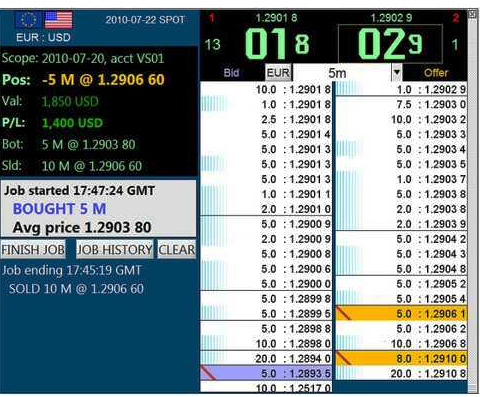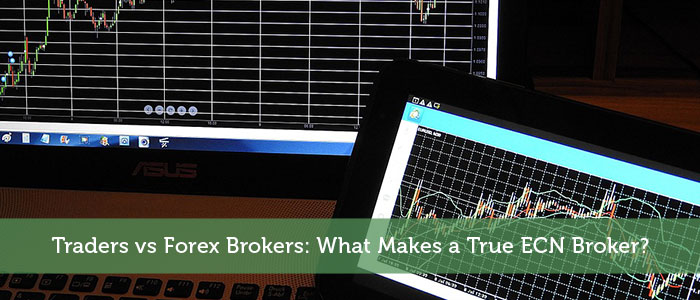In the middle of the last decade, there was a global explosion of retail forex trading as market makers and ECN brokers entered new markets. Fueling this growth was a combination of two factors:
- the increased penetration of the Internet in many emerging market economies.
- the development and advancement of new technology such as the smartphones and the various apps that came along with them.
Overtaken by enthusiasm, many retail traders eagerly registered new accounts with brokers, enraptured by the sales pages that painted the forex market as a place where dollars could literally be picked from the streets.
Many traders were unaware of the little nuances on the broker end that could affect trade outcomes. However, several high profile cases where regulators meted out fines on brokerages confirmed things that had previously been objects of suspicion. Before the Commodities and Futures Trading Commission (CFTC) dished out a $14million fine against Forex Capital Markets LLC (FXCM), there had been widespread complaints by traders on various online media. Online review websites such as ForexPeaceArmy.com were filled with numerous complaints about things like platforms freezing out during big money trades and unexplained price moves that tended to work more against traders than dealers. Some traders even said that some of the adverse price moves felt as if “someone was watching them”.
A fallout of the FXCM case was the confirmation of the long-held suspicion among retail traders that some market makers were actively influencing trades against traders. Suffice it to say that the case against FXCM put market makers in very negative light.
Attention started to shift towards the Electronic Communication Network (ECN) brokers. The perceived transparency of their operations as well as the fact that they offered a No-Dealing Desk (NDD) model of order transmission and fulfillment increased their market appeal. The only snag with ECN brokers was the high entrance fee required for opening an account. It was typical for a true ECN broker to request for account deposits of up to $50,000 to run NDD accounts; amounts out of the reach of many retail traders.
The Market Maker Comeback
Realizing that the expensive nature of operating an account with an ECN broker was something that they could use to their advantage, the market makers launched a comeback. The plan? Simply offer “ECN” broker accounts with reduced account deposit requirements.
So here we had ECN brokers offering accounts that required minimum deposits of between $50,000 and $100,000, and “ECN brokers” offering account opening deposits of as low as $500. Many traders have bought the gimmick and put their money into the cheaper ECN accounts. But are these the genuine ECN accounts that operate on true NDD/STP brokerage models?
One thing is sure: the market makers have mounted a fight back. Now understand that the structure of retail forex trading has placed a lot of importance on market makers with regards to providing the necessary liquidity in the market. Market makers pool together those with small capital and in doing so, enhance the liquidity in the forex market. But the fact is this: with a dealing desk model, it is always going to be the trader vs the broker, in a match where the broker is also the umpire. For a trader in this setup, winning will always be a difficult proposition.
The fact that there are those registering accounts with the new breed of ECN brokers means that there is definitely a lot of interest in this area. However, for traders to ensure that they are actually placing money with a true ECN broker and not a pseudo-ECN broker, we have highlighted the differences< so that you are sure of who you are dealing with.

Recommended Forex Posts:
Is that Broker a True ECN Broker?
What makes a true ECN broker? These are their characteristics.
A true ECN broker normally gets price quotes for currency pairs from liquidity providers and sends the quotes straight to its traders. Several quotes are provided in this manner, allowing the trader the opportunity to make a choice. Orders made on such quotes are then transmitted straight to the liquidity providers for execution without the intervention of a dealing desk.
Spreads are not fixed with a true ECN broker. It is virtually impossible to get a zero spread with a true ECN broker. If you actually open a tick chart of a currency pair with an ECN broker, you can actually see how the difference between the bid and ask prices of the currency pair keep changing with each tick.
ECN trading is based on volume. Therefore, the minimum trade volume on a true ECN broker platform is likely to be 1 standard lot. If that ECN broker you plan to use offers micro-lots, then you can be sure that the broker is a market maker.
With traders required to come up with a lot of capital to trade on ECN platforms, you tend to see lower leverage with true ECN brokers. It is very rare to see a true ECN broker with a non-dealing desk/straight through processing model offering leverage of more than 1:100.
- A true ECN broker will offer several price quotes which are usually different from each other. This is because the price quotes are obtained from different liquidity providers.
If you do not get any of these with that so-called ECN broker, you can be sure you are dealing with a market maker.
Conclusion
The forex market is not a squeaky clean marketplace. Wherever there is money to be made, you will see a trail of bad guys coming to see who can be taken to the cleaners. The sad fact is that the bad guys in forex do not wear ski masks and carry automatic or semi-automatic weapons; they often dress up in suits and put up web pages that make a lot of false representations. A broker claiming to be an ECN broker but which ends up as a glorified market maker when subjected to scrutiny is a false representation. To market makers, I say this: do not present yourselves as true ECN brokers. If you are a market maker, present yourself clearly as one. There will always be clientele for your platforms.
Exclusive Bonus: Before investing in forex check out our report on 70+ forex brokers. Find out which brokers you need to avoid. Receive our exclusive report for free today.
Author Bio: I am an entrepreneur and writer specializing in finance, trading, investment, forex and binary options. I have traded stocks since 2002, forex since 2006 and binary options since 2012. I am an Associate Member of the UK Society of Technical Analysts (STA).




